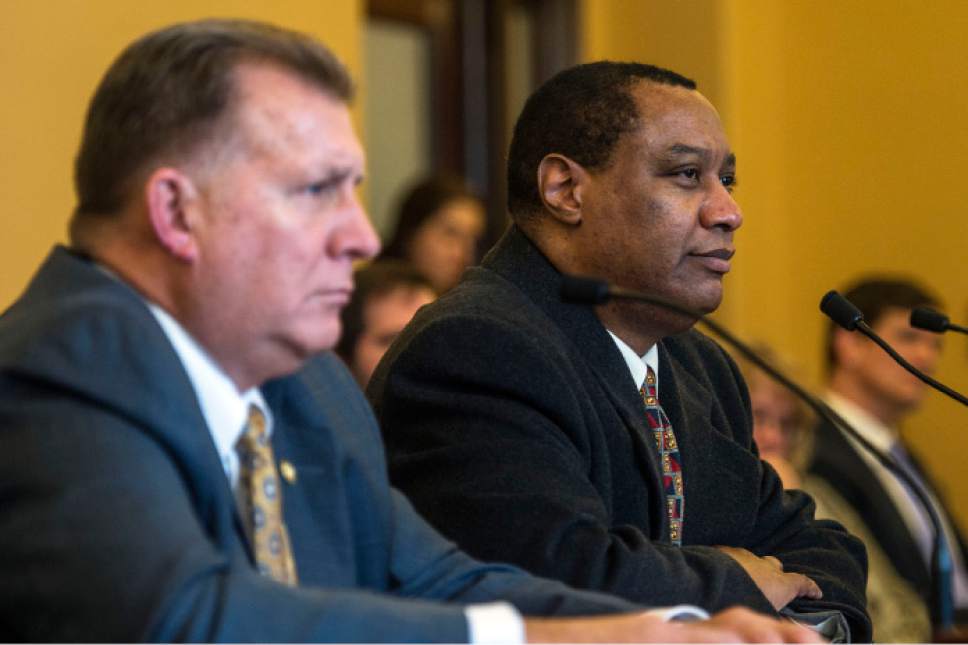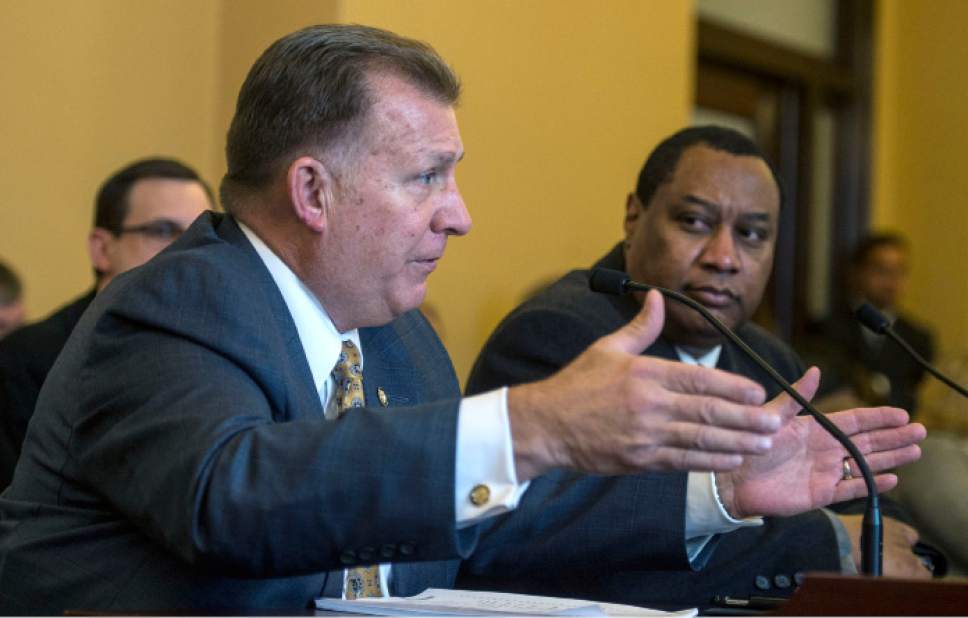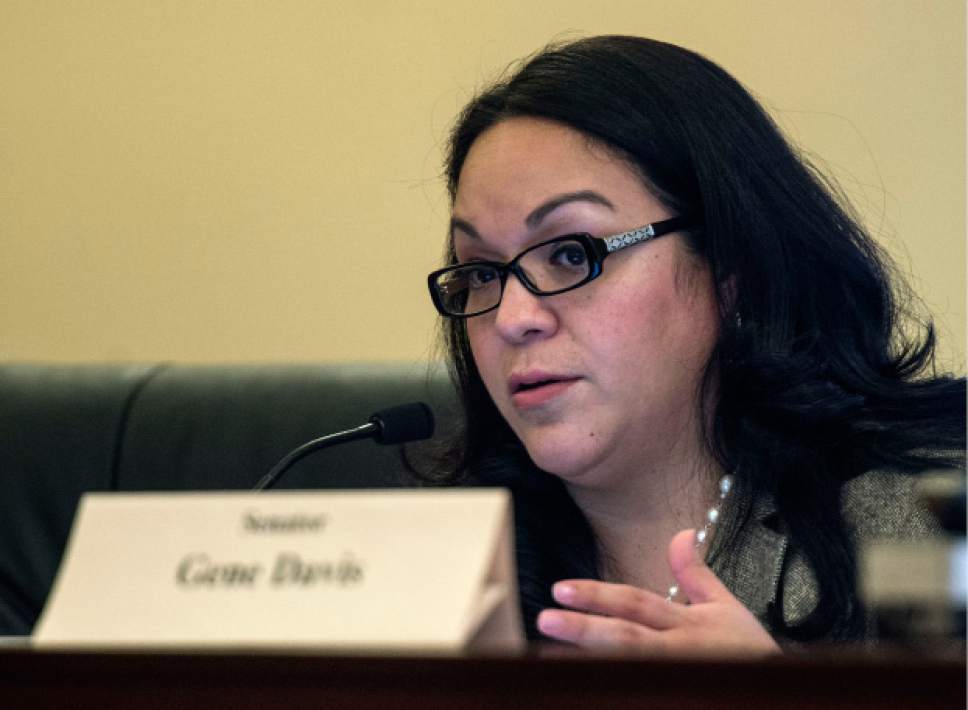This is an archived article that was published on sltrib.com in 2017, and information in the article may be outdated. It is provided only for personal research purposes and may not be reprinted.
A bill to create runoff elections in Utah started down a possible fast track Monday toward passing through both houses of the Legislature by the end of this week.
The Senate Judiciary Committee unanimously endorsed SB144 and sent it to the full Senate.
Its chairman, Sen. Todd Weiler, R-Woods Cross, said leaders hope to pass it through the Legislature this week to possibly stop long-running legal challenges by the Utah Republican Party to recent election law changes that could allow primary candidates to win with small pluralities.
The party sued over that issue, among others, so far unsuccessfully. But the party's executive committee meets Saturday, and Chairman James Evans said it could act to drop its lawsuits if the bill passes.
However, some concerns arose at the hearing that could slow its consideration.
The bill now would require runoff elections if a primary election occurs with four or more candidates, and no one achieves a plurality of at least 35 percent.
Sen. Daniel Thatcher, R-West Valley City, said he and some others would like to see that percentage higher, such as requiring a 50-percent-plus-one majority. The bill's sponsor, Sen. Curt Bramble, R-Provo, said that may force too many runoffs, which is why several states use the 35 percent threshold.
Weber County Clerk-Auditor Ricky Hatch, speaking for other county clerks statewide, said compressed schedules to allow runoffs would make it difficult for them to complete vote counts accurately within its time frames, and they worry about the extra costs.
Bramble said the bill will call for the state to pay for any runoffs.
Weiler was among those who questioned why the bill forces a runoff instead of using "instant runoff voting."
In that system, voters would rank their preference for candidates — first, second, third, etc. Candidates would be eliminated based on those rankings until someone wins a majority. All the voting would occur during the primary, and eliminate a runoff.
Bramble argued that system actually may not produce a majority winner. He said many people fail to rank all the candidates in such elections. So by the time someone achieves a majority of the ballots still being counted, it is actually less than a majority of ballots originally cast.
However, he said his bill will allow use of that system for voting by overseas military members, because that is the only way to make some timetables work.
The issue comes up because of SB54, a law Bramble passed to head off the Count My Vote ballot initiative that sought to replace Utah's traditional caucus and convention system with open primaries. Bramble's compromise created a hybrid, retaining the caucus-convention system, but also allowing candidates to qualify for a primary by collecting enough signatures.
That potentially allows many candidates into a primary, and may allow someone to win with a small plurality.







